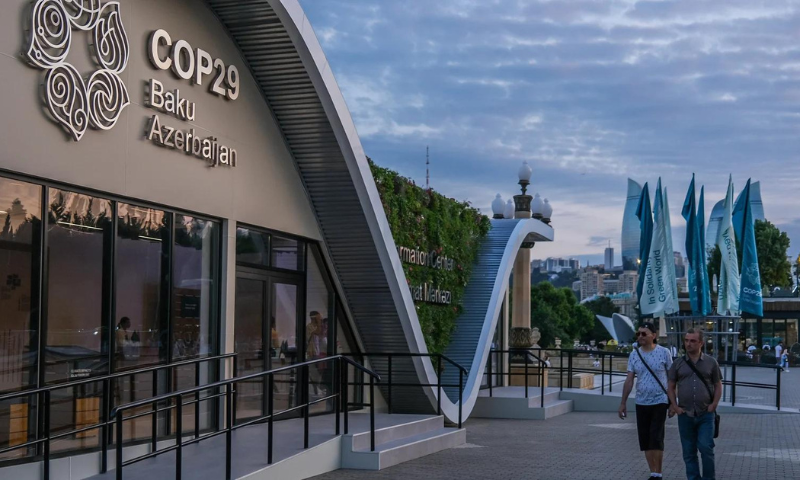PARIS: The host of this year’s UN climate summit on Wednesday urged governments to compromise to resolve a deadlock over financial assistance for poorer countries to combat global warming. Mukhtar Babayev, the president of the upcoming COP29 summit, stressed the urgency of reaching an agreement in a letter to the nearly 200 nations participating in the UN climate accords.
Scheduled for November in gas-rich Azerbaijan, the COP29 summit aims to finalize a global agreement on financial contributions from wealthy nations to help developing countries address climate change. However, the talks have stalled, with a recent diplomatic meeting in Bonn ending in a stalemate.
Developing countries, which contribute the least to carbon emissions but suffer the most from climate change, require significant investments to reduce their carbon footprints and enhance their defenses against global warming. Babayev, a government minister and former executive at Azerbaijan’s national oil company, lamented the lack of progress in his letter and warned that time was running out.
“We clearly need a rapid increase in the pace of our work,” wrote Babayev. “Time lost is lives, livelihoods, and the planet lost. We call on all parties to increase the pace of their work and move on from their early negotiating positions.”
Babayev’s appeal comes during the hottest year on record, with extreme heatwaves, floods, and wildfires affecting communities worldwide. UN climate chief Simon Stiell, whose homeland of Grenada was recently devastated by hurricane Beryl, also called for renewed political focus on combating global warming.
“Rather than just counting the costs of climate carnage, all governments must supercharge efforts to prevent them,” said Stiell during a visit to Carriacou, where his grandmother’s house was among those destroyed. He emphasized the critical need for delivering climate finance.
Wealthy nations are under pressure to commit to new financing targets that exceed the $100 billion a year promised in 2009. An expert assessment commissioned by the UN estimates that developing nations, excluding China, will need approximately $2.4 trillion annually in climate investment by 2030, nearly 25 times current levels.
However, nations remain far from agreeing on an aid figure, with disputes over who should pay, the form of the money, and the recipients. Under a 1992 climate accord, only the wealthiest industrialized nations at the time were obligated to provide climate finance.
Developing nations, however, resist this proposal, accusing wealthy countries of attempting to avoid their responsibilities. To facilitate progress, Azerbaijan will host an informal two-day retreat starting July 26 for negotiating teams. Two experienced diplomats, Dan Jorgensen of Denmark and Yasmine Fouad of Egypt, have been appointed to assist in advancing the discussions.
Babayev emphasized that resolving the impasse would require more than just negotiators, calling for political leadership to help move toward a consensus.
This November’s COP29 summit in gas-rich Azerbaijan is meant to produce a global agreement on how much rich nations should pay developing countries for climate assistance, but talks have stalled.























